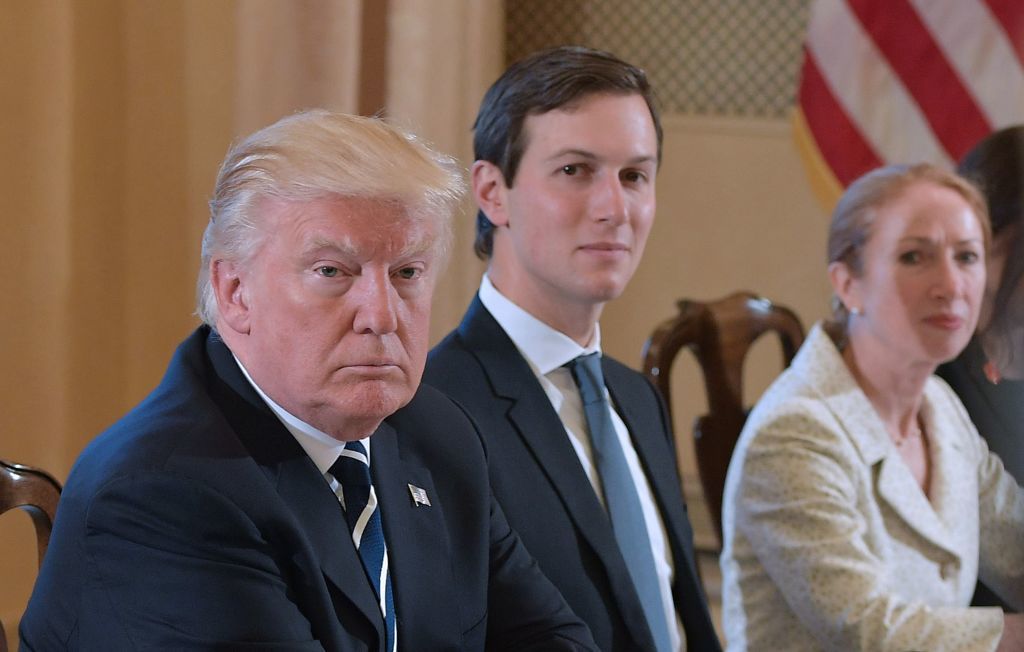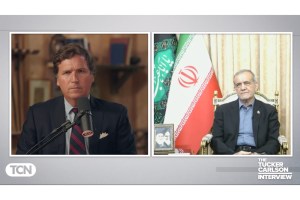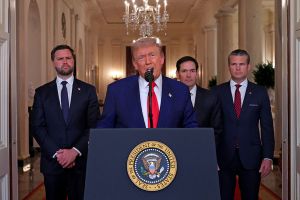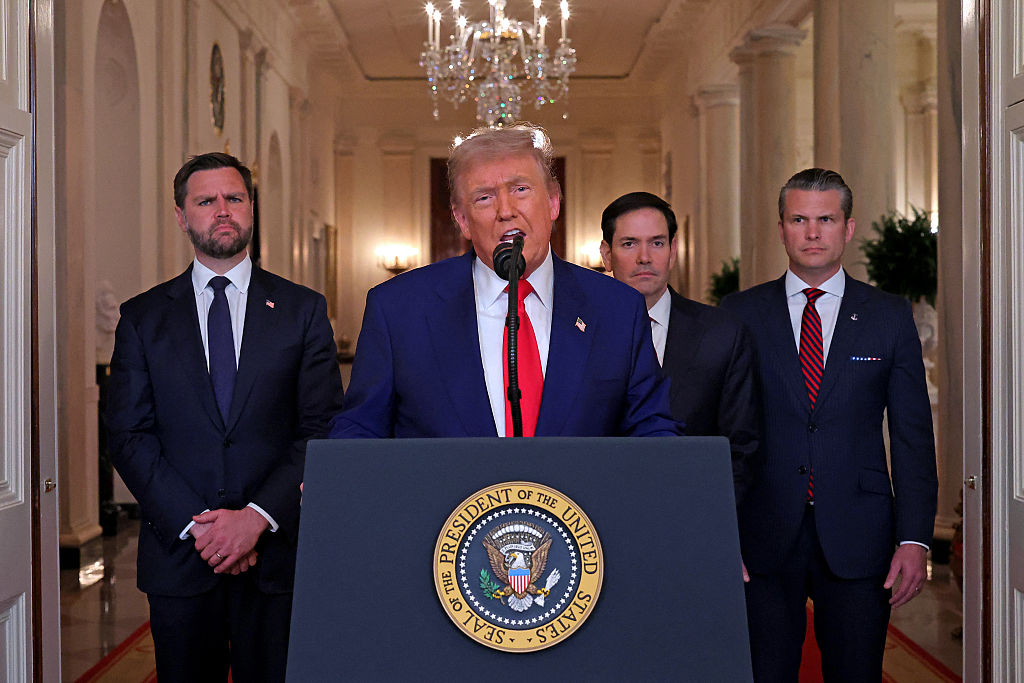When Donald Trump promised a ‘deal of the century’ between Israelis and Palestinians, he didn’t mention which century he had in mind. The twentieth-century deal, partitioning the territory between the river and the sea along demographic lines, went nowhere when the British Empire tried it in the 1930s and 1940s. It got a little further when the American imperium tried it again in the 1990s and 2000s, only for Yasser Arafat to steer it into the sand. It will go no further in the twenty-first century.
Since the failure of the Camp David talks in 2000, the chances of the ‘two-state solution’ gaining traction have only worsened. This has not stopped Trump’s emissaries Jared Kushner and Jason Greenblatt from attempting to get the show back on the road. For the last eighteen months, they have commuted to Riyadh, Cairo and Amman, and tried to fold an Israeli-Palestinian deal into an anti-Iranian alliance between Israel and America’s Sunni client states.
This effort has yielded a diplomatic triumph, the first steps towards reconciliation between Saudi Arabia and Israel. That, though, is an inadvertent gift from Iran. An Israeli-Palestinian process, let alone an actual deal, remains in the gift of the Palestinians. And they have no intention of giving anything.
Hamas, which rules Gaza, opposes the existence of Jews anywhere on the planet, and is candidly hostile to the United States. The Palestinian Authority, which rules the West Bank with cash from the EU and the US and support from the Israelis, has not spoken to the US since the end of 2017, when Trump announced his intention to move the US embassy to Jerusalem. The embassy move in May, and the deaths of dozens of Palestinians, most of them Hamas members, in protests at the Israel-Gaza border, has only hardened Mahmoud Abbas’ resolve not to negotiate.
Nor are the Palestinians capable of giving anything. The PLO in Ramallah and Hamas in Gaza have been in a state of civil war since 2007, when Hamas won Gaza’s local elections and expelled the PLO from its offices in the Strip, at times from the top of high buildings. Western reportage usually attributes the plight of the Gazans to the Israeli blockade of Hamas, and occasionally to a double blockade by Israel and Egypt, who are co-ordinating against Hamas and against its ideological kin, the Isis-affiliated groups in the Sinai. Yet the blockade of Gaza has a third partner, the Palestinian Authority—and against the wishes of the Israelis, the Egyptians, the Americans, and America’s Sunni allies.
Mahmoud Abbas’ government in Ramallah is squeezing Gaza harder than the Netanyahu government in Jerusalem is. It is Abbas and the PA, not Netanyahu, who is withholding the salaries of civil servants in Gaza. It is Abbas and the PA who have reduced the flow of electricity from Israel to Gaza, by not paying Gaza’s bills. It is Abbas and the PA who have blocked the import of medical supplies from the West Bank to Gaza. All this is intended to foment anger at Hamas, with the goal of restoring the Palestinian Authority to power in Gaza. All it has achieved is to saddle Israel with the responsibility of saving the Gazans from humanitarian disaster—and the better life is in Gaza, the more entrenched Hamas becomes.
According to the Israeli newspaper Ha-Aretz, Trump’s envoys have secured promises of $500m from the Arab states, as support for a peace deal. Much of the money would fund the building of a power station and an industrial area adjacent to Gaza, on Egyptian territory in northern Sinai. In other words, to improve life and economy for ordinary Gazans. In June, Nabil Abu Rudeineh, one of Abbas’ close aides, called an American-led effort to raise more than $500m for Gaza from Sunni Arab states a strategy to ‘perpetuate the separation between Gaza and the West Bank’. But it is Hamas and the PLO who have perpetuated that separation since 2007, despite sustained Egyptian and Saudi pressure for ‘national reconciliation’.
Israelis used to say that there was no partner for peace. Now, they have two non-partners for peace, one in Ramallah and the other in Gaza. In June, when Arab and Israeli media announced leaks from the Trump ‘deal’, Mohammed Hussein, the grand mufti of Jerusalem, called the deal ‘an unfair plan that aims at the liquidation of the Palestinian cause’ in a sermon to 90,000 worshippers at the al-Aqsa Mosque. The truth is that the Palestinian cause is now two Palestinian causes, divided by ideology, clan and geography.
One of those causes is led by Hamas in Gaza and fired by demographic pressure, religious zeal and chronic poverty. The other is led by the PLO in the West Bank, under an eighty-two year-old heavy smoker with heart trouble, a history of dodging negotiations, and no clear successor. This week, an unnamed ‘senior US official’ told the Washington Post that the US has recognised reality. As Abbas refuses to talk, the US is going to forget about peace plans and concentrate on alleviating the crisis in Gaza. No deal of the century, then. No peace, either.

























